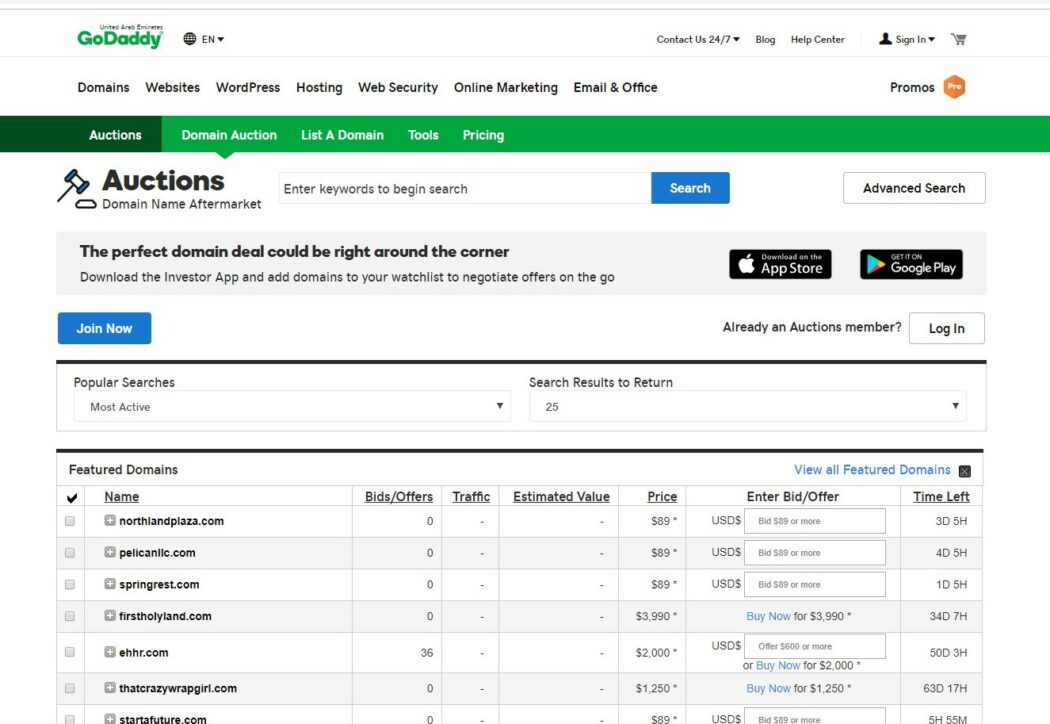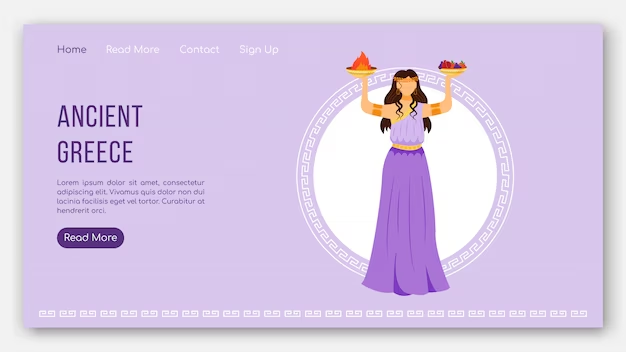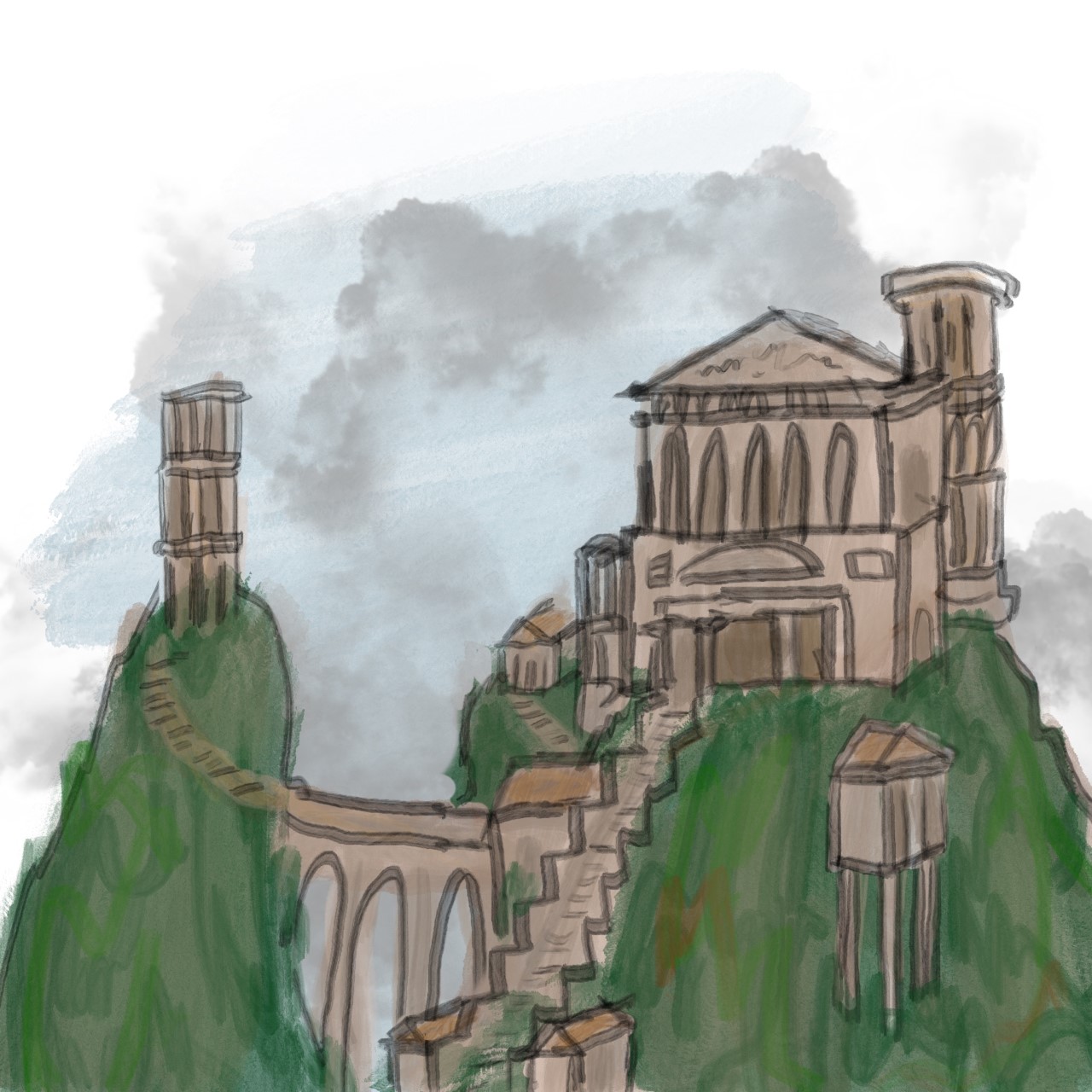Building Your Own Mythology Website - A Step-by-Step Guide
Creating a mythology website can be an exciting endeavor, allowing you to share fascinating stories, explore ancient legends, and build a community around a shared interest. In this comprehensive guide, we'll walk you through the process of building your own mythology website, from planning to launch.
Defining Your Niche And Audience
When embarking on the creation of your mythology website, the first critical step is defining your niche and identifying your target audience.
Delve Into Mythological Narratives
Dive deep into the expansive reservoir of mythological narratives at Greeklish.net. Take the time to delve into and comprehend the captivating tales that traverse various cultures. Whether your intrigue is drawn to the epic stories of Greek gods, the grand sagas of Norse mythology, or a more comprehensive exploration of myths from diverse global traditions, this deliberate decision on your niche becomes the guiding force shaping your content.
Precision For Resonance
Precision is key. A well-defined niche not only directs your content creation but also resonates profoundly with the specific audience you aim to captivate. It's about tailoring your offerings to meet the expectations and interests of enthusiasts in the chosen mythological realm.
Choosing A Domain Name
The second crucial step is selecting a domain name that not only serves as the digital address of your website but encapsulates the very essence of your chosen mythical realm.
Reflecting The Essence
Consider your domain nameas a digital emblem that reflects the core essence of your mythology focus. Incorporate keywords related to mythology to enhance discoverability and create a name that is both memorable and indicative of the enchanting narratives that visitors will encounter.
The Memorability Factor
Memorability is paramount. A memorable domain name ensures that your website becomes ingrained in the minds of your audience, fostering a connection that encourages return visits. The chosen name should resonate with the magical and mythical experience you promise to deliver.
Example: MythicLegends.com
By exemplifying this meticulous approach to domain selection, MythicLegends.com becomes more than just an address; it becomes a beckoning portal, inviting enthusiasts to immerse themselves in the curated world of captivating mythological tales.
Establishing A Solid Foundation
With a well-defined niche and a carefully chosen domain name, you're laying the foundation for a mythology website that not only captures the essence of ancient narratives but also speaks directly to the hearts of your intended audience. The journey of myth-building is underway, promising an online sanctuary where enthusiasts can explore, learn, and share their passion for the mystical realms of ancient tales.
Selecting A Web Hosting Provider
Once you've defined your niche and secured a memorable domain name, the next pivotal step is selecting a web hosting provider. This decision forms the backbone of your mythology website, influencing factors such as server reliability, storage space, and bandwidth.
Factors To Consider
Consider your specific needs when choosing a web hosting provider. Assess the reliability of their servers, ensuring minimal downtime for your website. Evaluate the offered storage space to accommodate the multimedia content inherent in mythological storytelling. Bandwidth is equally vital, especially if you anticipate a growing audience eager to explore your mythical narratives.
Popular Options
Several hosting providers are well-regarded in the industry for their user-friendly interfaces and reliable support. Here are a few popular choices:
- Bluehost: Known for its ease of use and robust features, Bluehost is a reliable option for hosting websites, including those focused on mythology.
- SiteGround: Renowned for its excellent customer support and top-notch performance, SiteGround is a preferred choice for many website owners.
- HostGator: With a reputation for providing scalable hosting solutions, HostGator is an excellent option for those anticipating growth in website traffic.
Example: Bluehost
Bluehost stands out as an example of a web hosting provider that seamlessly aligns with the needs of mythology websites. Its user-friendly interface and reliable support make it a suitable foundation for bringing your mythical realm to life.
Installing A Content Management System (CMS)
With your hosting provider selected, the next step is to install a Content Management System (CMS) that simplifies the management of your website.
Opt For User-Friendly Management
A CMS streamlines website management, making it accessible even for those without extensive technical expertise. Look for a system that facilitates easy content updates, ensuring you can focus more on crafting engaging mythological narratives.
WordPress A Popular Choice
WordPress, with its user-friendly interface and extensive plugin support, is a popular CMS choice. It provides a robust platform for creating, organizing, and managing your mythology website's content. The installation process is typically straightforward and can be done through your hosting provider's dashboard.
Selecting A Mythology-Themed Template
With your web hosting and CMS in place, the next significant step is selecting a mythology-themed template. This choice will shape the visual identity of your website, making it crucial to explore themes that align with your niche and offer flexibility for showcasing stories, images, and multimedia content.
Exploring Theme Options
Dive into the vast collection of themes available to discover one that resonates with the essence of your mythology website. Consider the thematic elements that will best represent your chosen niche and captivate your audience.
Alignment With Your Niche
Look for themes that align seamlessly with your mythology focus. Whether your tales revolve around Greek gods, Norse sagas, or a broader spectrum of global myths, the theme should visually reflect the unique characteristics of your narratives.
Flexibility For Multimedia
Choose a theme that offers the flexibility to showcase not just textual content but also captivating images, multimedia elements, and other forms of storytelling. This ensures that your mythological narratives come to life in a visually engaging manner.
Example - "Mythic Tales"
"Mythic Tales" stands out as an example of a theme specifically designed for mythology websites. With a dedicated focus on storytelling and visual appeal, it provides a canvas that allows your narratives to unfold in a captivating and immersive manner.
Customizing Your Website Design
Once you've selected a mythology-themed template, the next step is to personalize your website's design. Customization plays a crucial role in ensuring that the visual elements align with the mystique of mythology and enhance the overall user experience.
Personalization Elements
Customize colors, fonts, and layouts to infuse your website with a unique and captivating identity. Consider how each element contributes to the overall atmosphere you want to create for your visitors.
Reflecting The Mystique Of Mythology
Ensure that your design choices reflect the mystique of mythology. Draw inspiration from ancient artifacts, scripts, and symbols to create a visual language that transports visitors to the enchanting world of mythical tales.
Example - Ancient Artifacts And Scripts
For instance, consider using a color scheme inspired by the hues found in ancient artifacts. Choose fonts reminiscent of ancient scripts to add an extra layer of authenticity to your mythology website. This thoughtful customization ensures that every visual element contributes to the immersive experience you want to provide.
Creating Your Own Mythology - Crafting Compelling Content
In an era where readers eagerly embrace modern myths, the act of creating your own mythology becomes both cool and incredibly fun. Just as Bram Stoker breathed life into the legend of Dracula, giving it new rules and formulating fresh mythology, and as Tolkien birthed the intricate lore of Middle Earth, we find that the power of creating new myths resonates across generations.
Embracing Modern Myth-Making
In the footsteps of literary giants like Stoker and Tolkien, the opportunity to create engaging and contemporary mythology is at your fingertips. Today's readers comprehend the social actions and values associated with vampires, werewolves, and zombies, thanks to the newly crafted mythologies of recent decades.
A Continuation Of Myth-Making Tradition
Much like the continuation of mythology through history, your act of myth-making contributes to a living narrative. As you embark on this journey, consider the impact your created myths may have on future generations, echoing the enduring appeal of Stoker's Dracula and Tolkien's Middle Earth.
Create Engaging Content
Once you've conceptualized your mythology, the next step is to craft content that captivates your audience. Be it through articles, blog posts, or multimedia, the goal is to explore various aspects of your mythology and maintain consistency to keep your audience engaged.
Crafting Articles And Blog Posts
Develop compelling articles that delve into the intricacies of your mythological world. Offer in-depth analyses of myths, unravel the stories of legendary creatures, and provide insights into the values and social actions embedded in your created narratives.
User-Submitted Stories
Encourage community participation by inviting users to submit their own stories. This not only fosters a sense of belonging but also adds diverse perspectives to the evolving tapestry of your mythology.
Example - Weekly Mythical Chronicles
Commit to a regular schedule of content creation. Consider weekly articles that uncover the secrets of legendary creatures, provide in-depth analyses of myths, and showcase user-submitted stories. Consistency is key to maintaining and growing your engaged audience.
Incorporate Multimedia Elements
Enhance the immersive experience of your mythology website by incorporating multimedia elements. Visual content, in the form of images, videos, and interactive elements, adds depth to your storytelling, ensuring visitors remain enthralled in the mythical world you've meticulously created.
High-Quality Images Of Ancient Artifacts
Transport your audience to the heart of your mythology by including high-quality images of artifacts. These visuals not only enhance the storytelling but also provide a tangible connection to the ancient and mythical realms you're portraying.
Maps Of Mythical Realms
Enrich the narrative by incorporating maps that guide visitors through the diverse landscapes of your mythical realms. Maps offer a visual context, allowing readers to navigate and immerse themselves more deeply in the expansive world you've built.
Video Narrations Of Myths
Bring your myths to life through video narrations. Videos provide an auditory and visual experience, offering an alternative and engaging way for your audience to absorb the rich narratives you've woven.
A Multimedia Journey Through Myth
Consider a multimedia approach, incorporating high-quality images of ancient artifacts, intricate maps of mythical realms, and captivating video narrations of myths. This blend of visual elements ensures that your mythology is not merely read but experienced.
Testing And Launching Your Mythical Creation
The final steps in birthing your mythology website involve meticulous testing to ensure its seamless functionality and, once confirmed, the grand launch into the digital realm.
Thoroughly Test Functionality
Before unveiling your mythical creation to the world, conduct a comprehensive testing phase. Attend to the following crucial aspects:
- Check for Broken Links:Go through every page to ensure there are no broken links. A seamless navigation experience is paramount for user satisfaction.
- Test Across Devices:Verify that your website functions seamlessly across various devices, including desktops, tablets, and smartphones. Ensuring responsiveness enhances accessibility for a diverse audience.
- Cross-Browser Testing:Test your website on different browsers to guarantee compatibility. What works well on one browser may encounter issues on another, so cross-browser testing is essential.
- User Experience Evaluation:Place yourself in the shoes of your audience. Evaluate the overall user experience, from navigation to the readability of content. Ensure that your website is intuitive and engaging.
Example - Ensuring A Flawless Mythical Experience
Imagine yourself as an intrepid explorer stepping into the uncharted territories of your mythology website. By diligently checking for broken links, testing across devices and browsers, and evaluating the user experience, you're ensuring that your visitors embark on a seamless and captivating journey through the realms of your myths.
Launch Your Mythical Creation
Once you're satisfied with the results of your testing phase, it's time to release your mythical creation into the digital realm. This involves making your website publicly accessible.
- Domain Activation:Confirm that your domain is active and correctly pointing to your hosted website. This is essential for users to find and access your mythology site.
- Announce the Launch:Generate excitement by announcing the launch of your mythology website. Utilize social media, newsletters, or any other channels to inform your audience about the grand unveiling.
- Monitor Initial Feedback:Keep a close eye on user feedback during the initial days after launch. This allows you to address any unexpected issues swiftly and further refine the user experience.
Example - Unleashing The Magic
As you activate your domain, announce the launch, and monitor initial feedback, you're officially unleashing the magic of your mythology website. The culmination of your efforts is realized as enthusiasts from around the digital realm step into the mythical landscapes you've crafted.
Mythology Website - People Also Ask
Can I Create My Own Mythology?
The act of creating your own mythology is a creative and imaginative endeavor. Just like famous authors and storytellers have crafted mythical worlds, you too can embark on the journey of myth-building. Define your characters, establish rules for your world, and let your imagination soar as you shape a unique narrative that reflects your personal vision and creativity.
Is Mythology Public Domain?
In general, many ancient mythologies are considered public domain, meaning that their stories and characters are no longer under copyright protection. Ancient myths, such as those from Greek, Roman, Norse, or Egyptian traditions, have been passed down through generations and are widely available for public use. However, specific adaptations, retellings, or modern interpretations of these myths may have their own copyright protections.
What Is The Best Website For Greek Mythology?
Several websites provide comprehensive and reliable information on Greek mythology. One standout resource is:
Theoi Greek Mythology (theoi.com):This website offers a wealth of information on Greek mythology, including detailed profiles of gods and goddesses, myths, and a variety of related resources. It serves as a valuable reference for anyone interested in exploring the rich tapestry of Greek mythology.
Conclusion
Building a mythology website is a journey that combines creativity, technical skills, and a passion for storytelling. By following these steps, you can create a captivating online space where mythology enthusiasts can come together to explore, discuss, and appreciate the rich tapestry of ancient tales. Happy myth-building!



